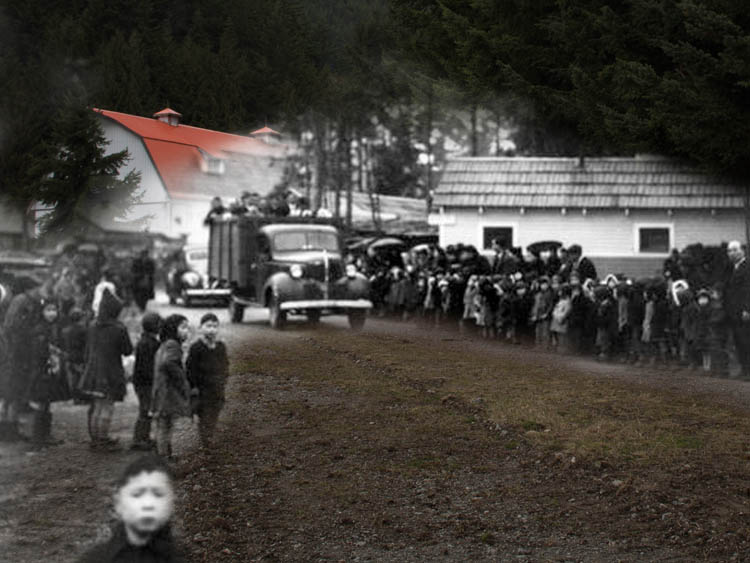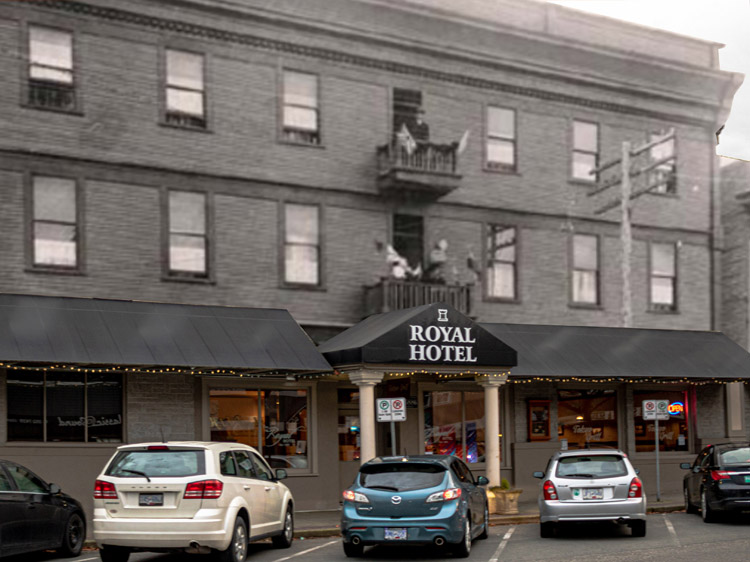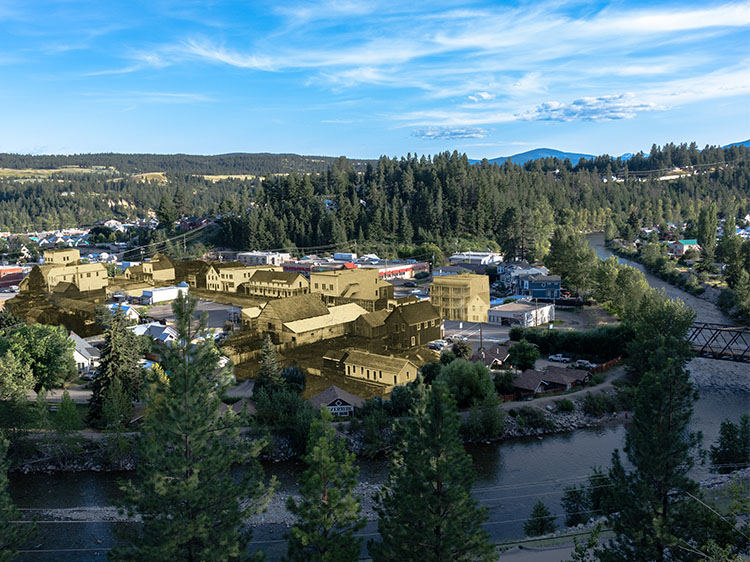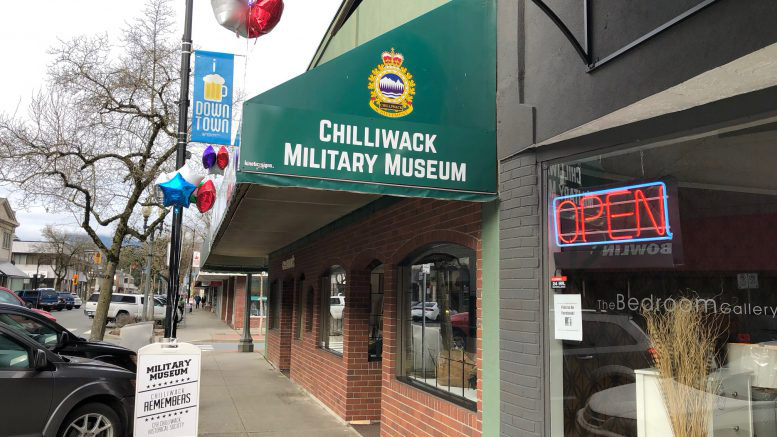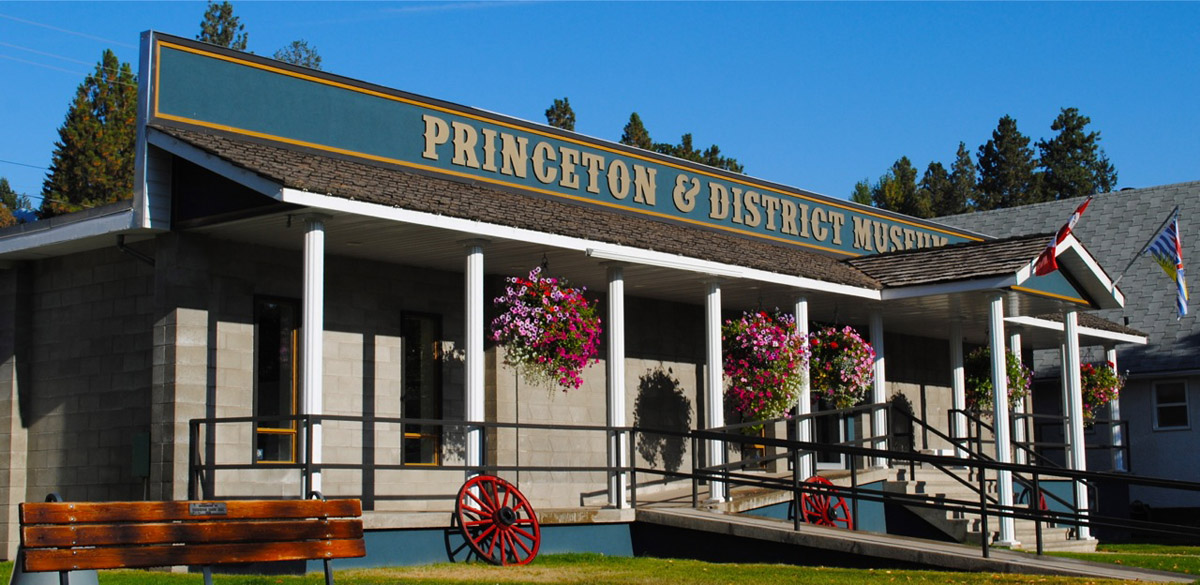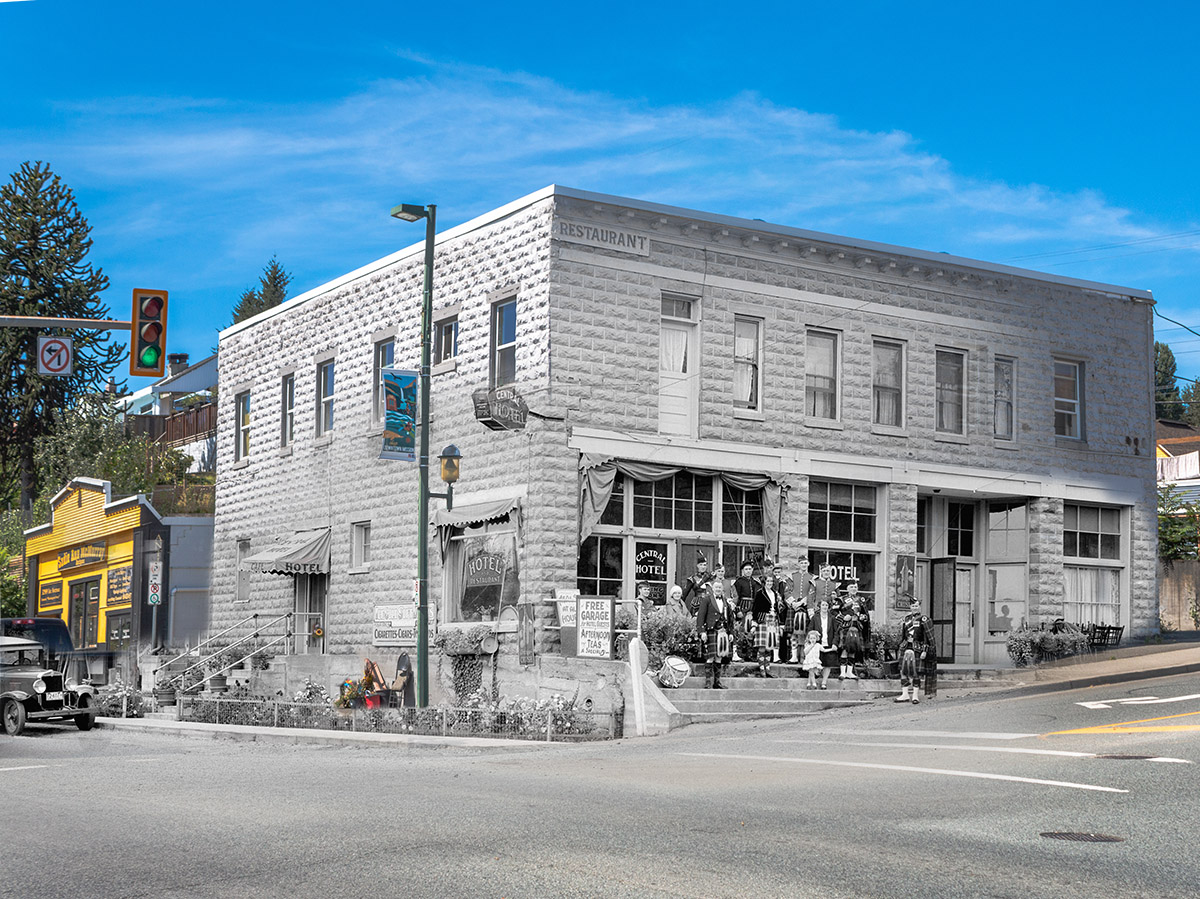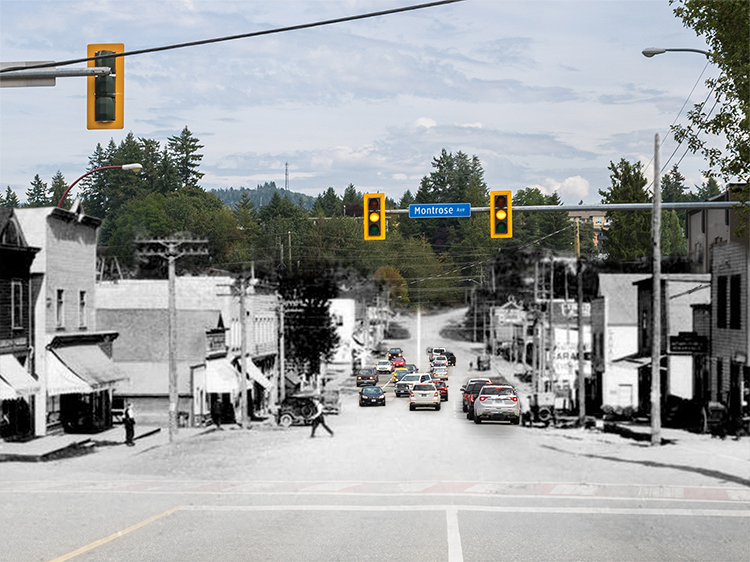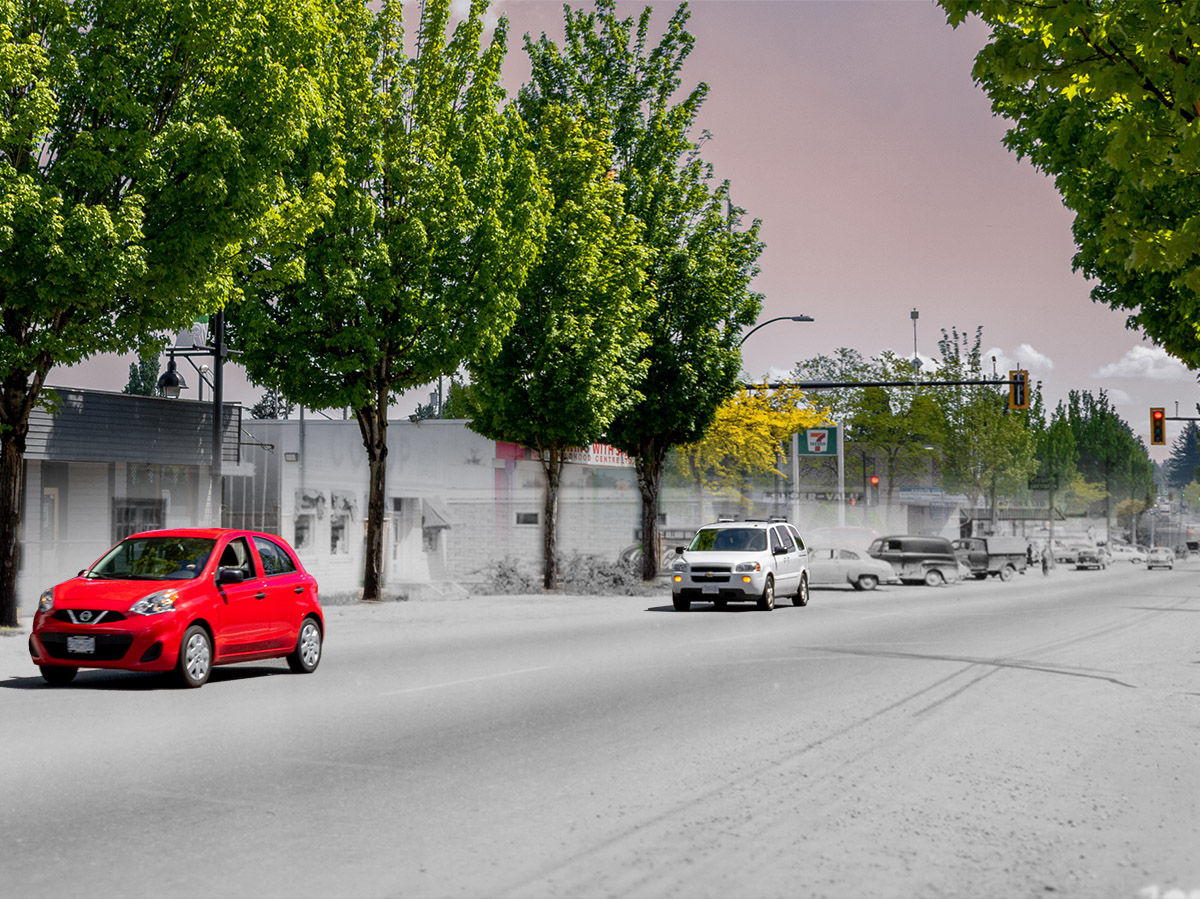Partner City
Hope
Gateway to the Cascades
Hope sits at the confluence of the Fraser and Coquihalla Rivers at the far eastern end of the Fraser River Valley. For the densely populated Lower Mainland, it is the gateway through the steep and jagged coastal mountain ranges into the province's interior. The area around Hope has been home to the Stó:lō people for as long as 10,000 years. Their culture evolved around the rivers, which served as both highways and a source of food, especially salmon. Fur traders from the Hudson's Bay Company established a fort here in 1848. They called it Fort Hope as they hoped (correctly it would turn out) this was a route through the mountains that didn't cross into American territory. The townsite grew rapidly after the Cariboo Gold Rush a decade later, which saw thousands of gold-seekers passing through Hope on their way to the gold fields. Hope was incorporated as a village in 1929, and only by 1965 had it grown large enough to justify incorporation as a town. In more recent times one of Hope's main claims to fame was as the filming location for the 1982 movie Rambo: First Blood. In October 2022 the town is hosting a festival to mark the 40th anniversary of the film's release.
This project was made possible through a partnership with Tourism Hope, Cascades & Canyons.
We acknowledge that Hope is on the traditional ancestral and unceded shared territory of the Chawathil people of the Tiyt Tribe. The Tiyt Tribes of the Stó:lō territory extend along the boundaries down both sides of the Fraser River from Yale to Seabird.
Walking Tours
Explore
Hope
Then and Now Photos
Painting of Fort Hope
History of Hope and the Fraser Canyon Facebook Group
1866
A painting of Fort Hope in 1866 by John Clayton White, a 31-year-old corporal in the Royal Engineers. White was a skilled architect and designed many early buildings in New Westminster.
When the border was drawn between the United States and BritishNorth America, the HBC was forced to relocate from its base at the mouth of the Columbia River in Oregon and establish a new route to the interior that didn't stray into American territory. It was hoped that the Fraser River would offer such a route (hence the name Hope).
The fort was established here in 1848 at the final navigable part of the lower Fraser River. People (especially gold miners) and their supplies came by boat from Fort Langley to Fort Hope, where they transferred their supplies to pack mules.
Royal Engineers, like the painter, hewed rough pack roads to the gold fields in the interior, cementing Fort Hope's importance as a trans-shipment point in BC's early colonial period.
A Grand Potlatch
Yale Digital Collections WA MSS 49
1859
This is a painting by Robert Brown titled "Grand Potlatch (or distribution of blankets, guns, and money) at Fort Hope Rancherie, Fraser River, 1859."
Greenwood Island
ca. 1890s
Looking down the Fraser River past Greenwood Island. As you can see, Greenwood Island is much larger today, having been built up by the Fraser River's accumulating silt.
Coquihalla Hotel
1912
The stately Coquihalla Hotel that once stood at the corner of Wallace and 3rd Ave. It would later be destroyed in a fire.
Winnipeg to Vancouver
History of Hope and the Fraser Canyon Facebook Group
1924
This photo shows Austin F. Bement and E.S. Evans in their Packard 226. They were nearing the end of a remarkable Winnipeg to Vancouver journey by car, a feat made difficult by the complete lack of any highways across the country.
They wanted to popularize the idea of building a highway across Canada, after the United States had completed its own Lincoln Highway in 1913. They wanted to show it was possible (if very challenging) to get from one end of the country to the other by car, though to do so they had to drive along the CNR's railway tracks, something that was quite dangerous when a train could come along at any moment, leaving them little time to manoeuvre off the tracks.
Christ Church Anglican
Ca. 1935
Christ Church Anglican seen through the trees. The building was consecrated in 1861, making it the oldest church still on its original site in BC. It is part of the Fort Hope National HIstoric Site.
Wallace and Water
History of Hope and the Fraser Canyon Facebook Group
Ca. 1920s-30s
In this photo of Wallace Street we can see at right the V Garage which was owned by Herbert Woods. He had a special predilection for the letter V, and ensured all of his many children had names like Violet, Vivian, Victoria, and Vimy (among others).
Trestle Bridge
History of Hope and the Fraser Canyon Facebook Group
Ca. 1930s
A view of the one-lane car trestle bridge over the Coquihalla that was built in 1928. The bridge played a prominent part in the movie Rambo: First Blood. It was demolished in 2011 and replaced with a wider two-lane bridge, much to the chagrin of First Blood fans.
The Traffic Bridge
Ca. 1950s
A view of the Traffic Bridge spanning the Fraser River at Hope. This bridge is now part of the Trans-Canada Highway that heads north to Yale.
The Fort Hope Cairn
History of Hope and the Fraser Canyon Facebook Group
Ca. 1941
A view of the Fort Hope Cairn to mark the Hudson's Bay Company trading fort established here in 1848. The cairn is a National Historic Site.
Commercial Hotel
1950
The Hope Motor Hotel has a long history in Hope, previously known as the Commercial Hotel.
Wallace in the 50s
History of Hope and the Fraser Canyon Facebook Group
Ca. 1950s
A colour photo of Wallce Street shows a number of flashy cars that were becoming immensely popular in that era. The blue car in the foreground is a 1957 Meteor Rideau. Meteor was a Canadian car manufacturer that was discontinued in 1976.
Fort Hope Hotel
History of Hope and the Fraser Canyon Facebook Group
1950
The Fort Hope Hotel once stood on Water Ave, near where the old Hudson's Bay Company fort was located.
Looking up Wallace St.
Ca. 1970s
A view of Wallace Street taken by the Fort Hope Cairn just by the river's edge. You'll notice there are no more Texaco gas stations in Canada today.




































